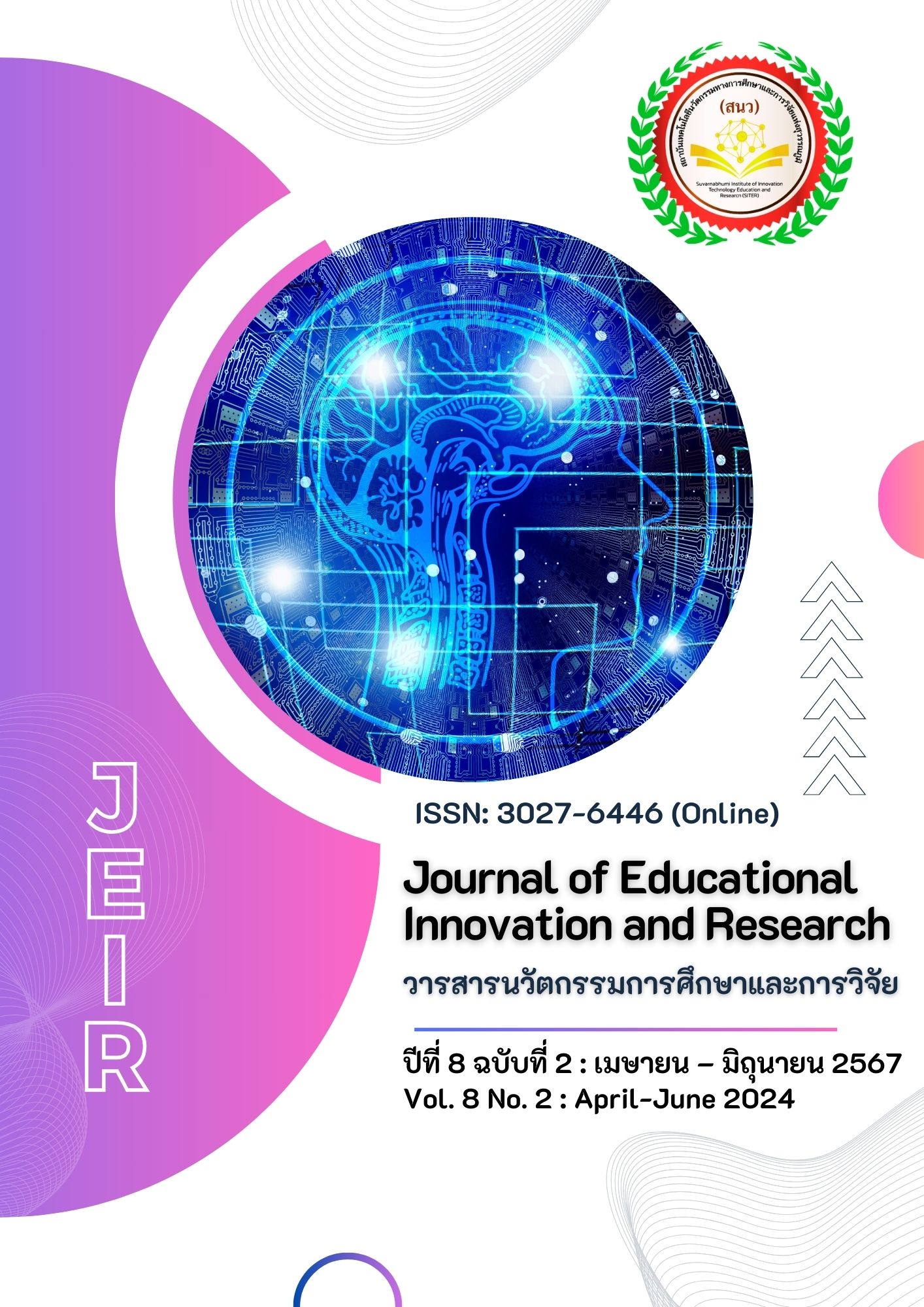การใช้พลังอำนาจของผู้บริหารที่ส่งผลต่อการทำงานตามหลักภควันตภาพ ของโรงเรียนมัธยมศึกษา
Main Article Content
บทคัดย่อ
การวิจัยนี้มีวัตถุประสงค์ เพื่อทราบ 1) องค์ประกอบของการใช้พลังอำนาจของผู้บริหารโรงเรียนมัธยมศึกษา 2) องค์ประกอบของการทำงานตามหลักภควันตภาพของโรงเรียนมัธยมศึกษา และ 3) การส่งผลขององค์ประกอบการใช้พลังอำนาจของผู้บริหารต่อการทำงานตามหลักภควันตภาพของโรงเรียนมัธยมศึกษา รูปแบบการวิจัยเชิงปริมาณ กลุ่มตัวอย่าง คือ โรงเรียนมัธยมศึกษา จำนวน 96 โรงเรียน ผู้ให้ข้อมูลในแต่ละโรงเรียน ประกอบด้วย ผู้อำนวยการโรงเรียน หัวหน้ากลุ่มสาระการเรียนรู้ และกรรมการสถานศึกษาขั้นพื้นฐาน จำนวน 288 เครื่องมือวิจัย 1) แบบสัมภาษณ์กึ่งโครงสร้าง 2) แบบสอบถามความคิดเห็น สถิติที่ใช้ในการวิเคราะห์ข้อมูล คือ ความถี่ ร้อยละ มัชฌิมเลขคณิต ส่วนเบี่ยงเบนมาตรฐาน การวิเคราะห์องค์ประกอบเชิงสำรวจ การวิเคราะห์องค์ประกอบเชิงยืนยัน และการวิเคราะห์การถดถอยพหุคูณแบบขั้นตอน
ผลการวิจัยพบว่า
1. องค์ประกอบการใช้พลังอำนาจของผู้บริหารโรงเรียนมัธยมศึกษา ประกอบด้วย 5 องค์ประกอบ คือ การสื่อสารชักจูง, การมอบหมายสั่งการ, การกำหนดเป้าหมาย, การกำกับควบคุม และความสามารถเชี่ยวชาญ
2. องค์ประกอบของการทำงานตามหลักภควันตภาพของโรงเรียนมัธยมศึกษามีความสอดคล้องกับข้อมูลเชิงประจักษ์
3. องค์ประกอบการใช้พลังอำนาจของผู้บริหารโรงเรียนมัธยมศึกษาส่งผลต่อการทำงานตามหลักภควันตภาพของโรงเรียนมัธยมศึกษา โดยมี 4 องค์ประกอบ ได้แก่ การมอบหมายสั่งการ, การกำหนดเป้าหมาย, การกำกับควบคุม และความสามารถเชี่ยวชาญ สามารถทำนายการทำงานตามหลักภควันตภาพของโรงเรียนมัธยมศึกษา ได้ร้อยละ 68.60
Article Details

อนุญาตภายใต้เงื่อนไข Creative Commons Attribution-NonCommercial-NoDerivatives 4.0 International License.
เอกสารอ้างอิง
Barstow, C. (2017). Right Use of Power: The Heart of Ethics: A Guide and Resource for Professional Relationships. 10th Anniversary Edition. Many Realms, Routledge.
Doğan H., & Çelik K. (2019). The Relation Between School Administrators’ Use of Power Styles and Teachers’ Organizational Commitment and Their Job Performance. Education and Science, 44, 198.
Hardy, A. R., Whitehouse, R. & Yarnell, D. (2015). Power and the Powers: The Use and Abuse of Power in its Missional Context. Wipf and Stock Publishers.
Madhushree, L. M., Bhuvana, R., & Aithal, P.S. (2020). Impact of COVID-19 on Redefining the Services of Educational Institutions using Ubiquitous Technology International Journal of Management. Technology, and Social Sciences (IJMTS), 5,(2), 266-282.
Office of the National Economic and Social Development Council. (2023). The Thirteenth National Economic and Social Development Plan (2023-2027). https://www.ratchakitcha.soc.go.th/ DATA/PDF/2565/E/258/T_0001.PDF
Office of The Public Sector Development Commission (2020). Government 4.0 Better Governance, Happier Citizens. from www.opdc.go.th
Özdemir, G., & Özdemir, A. (2022). The Styles of School Principals’ Using Power Sources and the Relationship between Principal Support and Citizenship Behaviour (Ankara Province Example). SDU International Journal of Educational Studies, 9(1), 17-28.
Subsoothi, J. (2015). Ubiquitous Ways for The Educational Service Area Office. [Doctoral dissertation, Silpakorn University].
Wang, S., & Wang, G. (2022). Research on Ubiquitous Map Information Organization Oriented to Location - Based Aggregation. Journal of Geoscience and Environment Protection, 10, 238-249.
World Economic Forum. (2020). The World Economic Forum COVID. https://www.weforum.org/agenda /2020/07/covid19-education-lockdown- children.
Yamane, T. (1967). An introduction Analysis. Harper & Row, Publishing.


